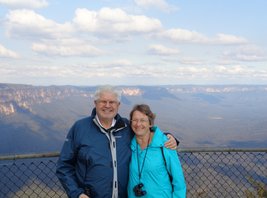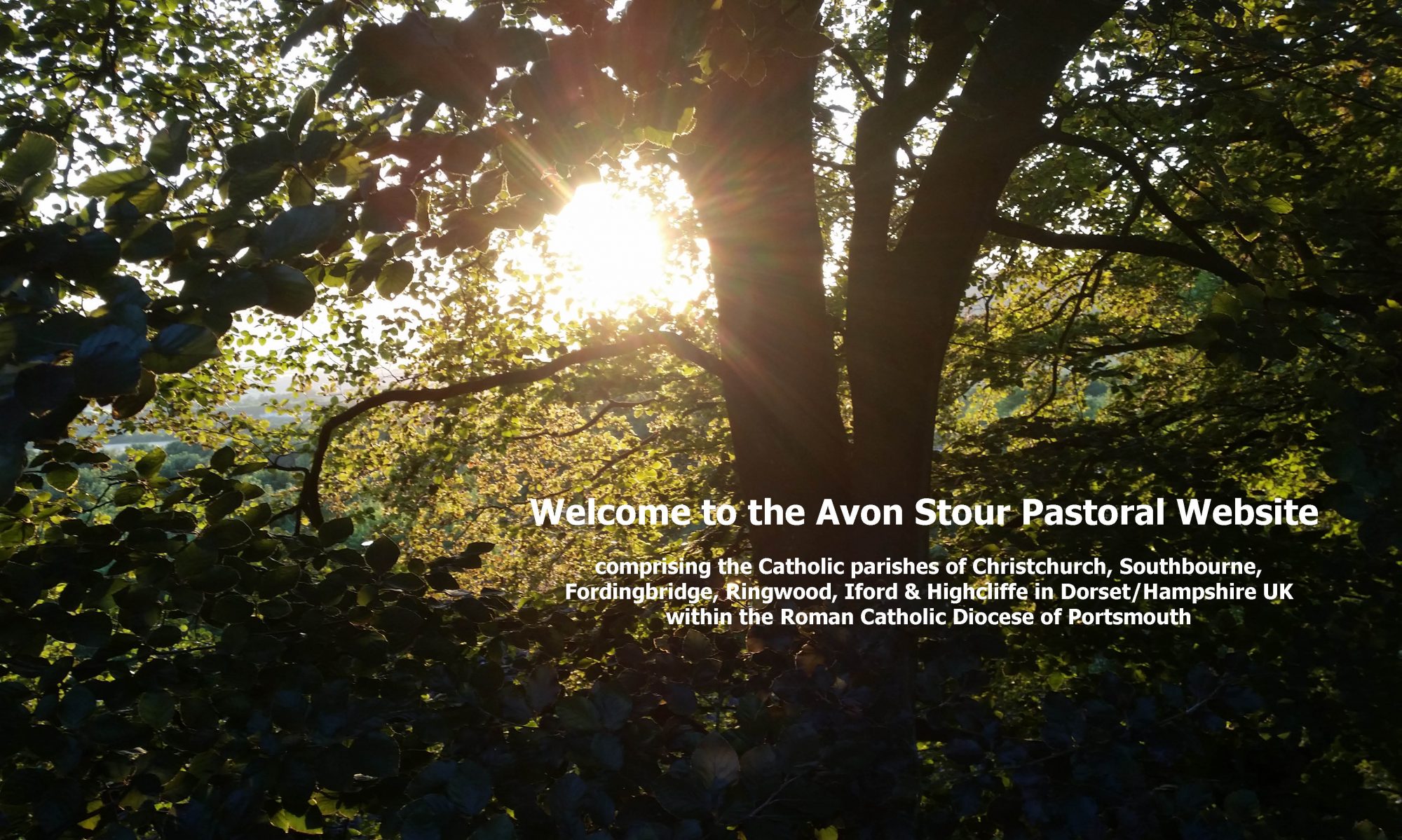
On 2nd July 2016 Mr Hugh Parry [pictured above with his wife Margaret] was Ordained into the Permanent Diaconate and will be based in Christchurch. His appointment by the Bishop is as a Deacon to the whole Avon Stour Pastoral Area.
Hugh introduced himself to the Congregation in Christchurch in April and has kindly produced the following explanation of the Diaconate and his role.
“The ministry of Permanent Deacon finds its origins in the early days of the church and the story of the appointment of Stephen and his six colleagues is covered in the Acts of the Apostles, Chapter 6, verses 1 to 7.
Although the ministry fell into disuse for some centuries, it was restored by Vatican II. The word Deacon derives from the old English diacon which in turn was from the Greek diakonos meaning ‘servant’ or ‘Christian minister,’ both of which perfectly sum up the role.
Deacon, in this sense, is prefaced with the word Permanent in order to distinguish it from the Transitional Diaconate, the stage through which all priests pass before ordination to the Priesthood. The intention for Permanent Deacons is that, other than in the most exceptional circumstances, they will remain as Deacons. Although not exclusively, it is generally a ministry for married men and unlike the priestly vocation, the vocation to the Permanent Diaconate is not considered a primary vocation which remains that of husband, father and grandfather; the Diaconate is an important but secondary vocation.
The conferring of Holy Orders is a life changing experience and it has been said that it is not what one does as a Deacon that matters but the person you are. However, it is important to understand what duties a Deacon can and cannot perform.
The ministry has been likened to a 3 legged milking stool:
- The first leg is as Minister of the Word. When present at Mass, a deacon ALWAYS proclaims the Gospel, even if the Pope is the main celebrant at the Mass.
- The second leg is that of Minister of the Altar which, in addition to assisting the Priest at Mass, includes, in his own right, the ability to conduct baptisms, funerals and marriages which do not involve a Mass.
- The final leg of the three is as a Minister of Charity, going out and visiting the sick in their homes, hospitals or nursing homes and being available to anyone in need, whatever that need may be.
As important is what Permanent Deacons cannot do:
- consecrate the blessed gifts
- anoint the sick
- give absolution
The role is not subservient to but complimentary to the work of the Parish Priest and like him, Deacons are responsible to the Bishop. The ministry does not replace any other clerical or lay Ministry; it is complimentary to the Ministries which are already being carried out in God’s name.”
